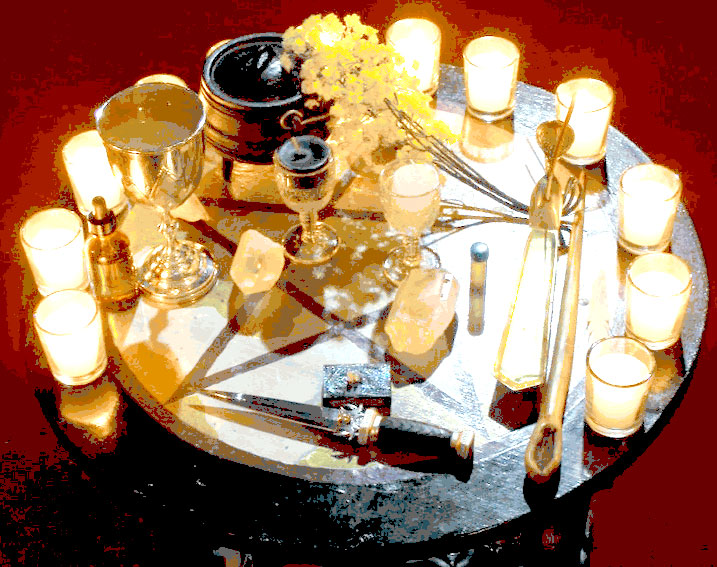
Imbolc, (pronounced "IM-bulk" or "EM-bowlk"), also called Oimealg, ("IM-mol'g), by the Druids, is the festival of the lactating sheep. It is derived from the Gaelic word "oimelc" which means "ewe's milk." Herd animals have either given birth to the first offspring of the year, or their wombs are swollen, and with the milk of life is flowing into their teats and udders. It is the time of blessing of the seeds and consecration of agricultural tools. It marks the center point of the dark half of the year. It is the festival of the Maiden goddess for, beginning February 2 in the Northern Hemisphere and August 1 in the Southern Hemisphere, it is her season to prepare for growth and renewal. Brighid's snake emerges from the womb of the Earth Mother to test the weather, (the origin of Ground Hog Day), and in many places, the first crocus flowers began to spring forth from the frozen earth.
The Maiden is honored, as the Bride, on this Sabbat. Corn Dollies, also called Brideo'gas are created from oat or wheat straw and placed in baskets with white flower bedding. Young girls then carry the Brideo'gas door to door, and gifts are bestowed upon the image from each household. Afterward, at the traditional feast, the older women make personal acorn wands for the dollies to hold, and in the morning the ashes in the hearth are examined to see if the magic wands left marks as a good omen. Brighid's Crosses are fashioned from wheat stalks and exchanged as symbols of protection and prosperity in the coming year. Home hearth fires are put out and re-lit, and a besom is placed by the front door to symbolize sweeping out the old and welcoming the new. Candles are lit and placed in each room of the house to honor the re-birth of the Sun.
Another traditional symbol of Imbolc is the plow. In some areas, this is the first day in preparation for the first planting of crops. A decorated plow is dragged from door to door, with costumed children following asking for food, drinks, or money. Should they be refused, the household is paid back by having its front garden plowed up. In other areas, the plow is decorated and then Whiskey, the "water of life" is poured over it. Pieces of cheese and bread are left by the plow and in the newly turned furrows as offerings to the nature spirits. It is considered taboo to cut or pick plants during this time.

